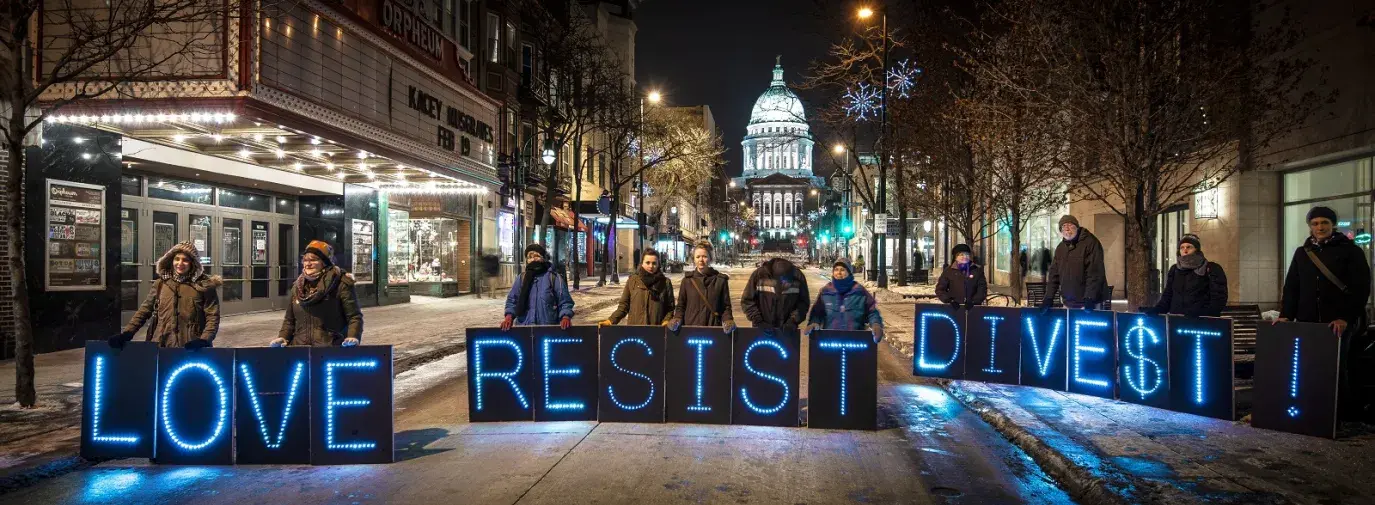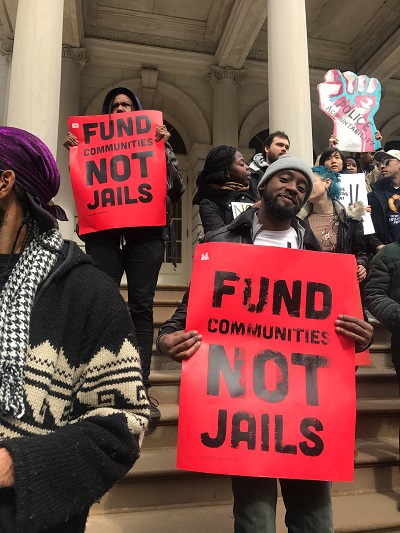
If money talks, then divestment walks. At least it does in the fossil fuel divestment movement that has prompted large and scalable campaigns against organizations that ally with oil and gas. Since 2012, investment activists and college students have been pressuring universities, religious institutions, and philanthropic foundations to divest from fossil fuels. Nine years later, the movement has totaled over $14 trillion in institutional divestments, according to advocacy group Fossil Free.
These activists have prompted the largest anti-corporate campaign of its kind, sending a market signal to industries and investors that the public wants companies to stop fueling the climate crisis and start putting their resources into clean energy and other sustainable investments. The success of the fossil fuel divestment movement has encouraged others to launch additional campaigns against companies and projects that are harmful to people and the planet.
Fossil Fuels
2020 is currently tied with 2016 for hottest years ever. US carbon emissions decreased in 2020, but analysts credit lockdown, not significant action by the government or companies to fight the climate crisis. However, the fossil fuel divestment campaign has made significant strides in squeezing the industry: in 2020, Dominion Energy sold its gas transmissions holdings and BP announced the $5 billion sale of its petrochemicals business (chemicals made through the use of oil, like plastics and solvents).
To prevent the burning of fossil fuels and further exacerbate climate change, 350.org founder Bill McKibben launched a campaign to get investors around the world to divest from the top 200 publicly traded fossil-fuel companies. The movement has evolved significantly since its launch in 2012—what began with universities, religious institutions, and philanthropic foundations now includes major capital cities, mainstream banks, insurance companies, and massive pension funds. Divestment pledges now span across 48 countries with over 70% of commitments outside the US, as of Fossil Free’s latest report.
Recent victories have added to the multi-trillion dollar divestment records. New York City promised to completely decarbonize its portfolio by 2040—at a value of over $500 billion. Also in 2020, 42 faith institutions in 14 countries announced their divestment in the largest-ever joint announcement by faith groups.
Despite these new records, there is much work to be done. Harvard University sits on the largest academic endowment in the world, $41 billion. Yet the university refuses to divest despite growing pressure, including a complaint to the Attorney General of Massachusetts claiming the university is violating its duty as a nonprofit by investing in fossil fuels. Other higher institutions have stepped up, including Columbia University, which has divested from companies that derive 35% or more revenue from coal production.
The biggest opportunity for divestment lies with the largest financial institutions in the country. Megabank JPMorgan Chase has not only continued to fund but has increased funding for fossil fuels and their expansion. Its financing of $253 billion in the last four years alone is by far the greatest investment in the climate disaster that any bank in the world has made.
JPMorgan Chase is not the only one—between 2016 and 2020, 56 global private sector banks funneled $3.8 trillion dollars into fossil fuel projects and companies. Some banks have taken small steps such as increasing their lending for renewable energy, but these actions don’t target the root of the problem that is fossil fuel funding. FossilBanks.org has the full list of banks that are the largest financers of the fossil fuel industry, including, but not limited to: Chase, Citi, Wells Fargo, Bank of America, Barclays, TD, and Morgan Stanley.
Studies show that the return on investment for fossil fuels is no longer lucrative. Citing figures from stock market company MSCI, the Guardian noted in 2015 that “investors who divested from fossil fuel companies would have earned an average return of 13% a year since 2010, compared to the 11.8% a year return earned by conventional investors.” Sustainable funds held up better than conventional counterparts in the first quarter market downturn in 2020, according to investment research company Morningstar.
Visit greenamerica.org/divest-reinvest for a list of resources to help you divest from fossil fuels and reinvest in sustainability, including fossil-free mutual funds, CDs, as well as financial advisors who can help clients construct fossil-free portfolios.
Private Prisons and Detention Centers
Incarcerated people in both government and private prisons face poor living conditions such as insufficient food and shelter, coupled with inadequate services like poor healthcare, education, and working environments. Inmates are exempt from the Fair Labor Standards Act and can be required to work for free while incarcerated under the 13th Amendment. Most inmates work in maintenance or food service in their own prison facilities to reduce the overall operating costs.

Operating costs are also cut by skimming on safety, education, and health standards; a 2016 report from the Justice Department found that private prisons have more safety and security incidents per capita than federal institutions.
Private prisons, unlike public ones, have an added profit incentive. Rather than reducing recidivism and rehabilitating prisoners, private prisons can increase their profit margin by lobbying for laws that increase incarceration and extend sentences.
Of the biggest private prison companies, GEO Group derives $1.3 billion in profits from its contracts with the government and CoreCivic makes about $1 billion per year from government contracts. They benefit from the aggressive immigration policy that fills detention beds and backlogs immigration courts—all while having unlimited access to a growing pool of workers. In 2021, President Biden signed an executive order that the Department of Justice would not renew contracts with private prison operators, but this does not affect ICE detention centers, which are run through the Department of Homeland Security.
A federal lawsuit filed in 2018 by a coalition of civil rights groups and lawyers alleges that detainees in the Stewart Detention Center in South Georgia were coerced into working for a few cents each day or go without necessities like food and soap. Stewart Detention Center, which is run by CoreCivic, is still open and oversaw some of Georgia’s highest COVID-19 rates due to a spike at the facility. The lawsuit is ongoing as of June 2021.
Like people convicted to sentences in private prisons, immigrants in for-profit detention centers face—and work in—inhumane conditions; however, asylum seekers are fleeing persecution, torture, or death in their home countries and come to the US for protection. Zero-tolerance policies led to the separation of over 5,500 children from their families at the US-Mexico border. Some of those families have been reunited. Others have not been deemed eligible, or parents had already been deported, cutting contact without well-kept records.
Activists are standing up for prison workers and unfairly detained immigrants through divestment. Freedom to Thrive (formerly Enlace) is urging investors to remove investments from GEO Group and CoreCivic. They’re also targeting the The Million Shares Club, a group of 39 major financial investors that each own over one million shares of these two private prison companies combined. The Million Shares Club includes groups like BlackRock Inc., Vanguard Group INC, and Prudential Financial Inc, to name a few.
In a wave of 2019 victories, JPMorgan Chase, Bank of America, Wells Fargo, BNP Paribas, SunTrust, and US Bancorp all announced decisions to exit the private prison and immigrant detention industries. Private prisons continue with funding from smaller banks, contracts with ICE/DHS, and with states.
You can take action by breaking up with mega-banks that support fossil fuels or private prisons and detention centers and put your funds in a community development, green bank or credit union. These institutions work to build the green economy through community development projects and loans—not private prisons and detention centers.







